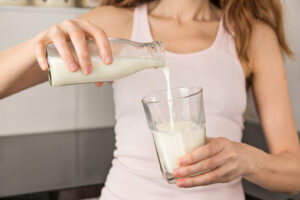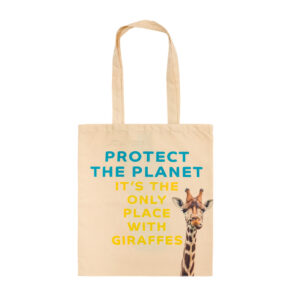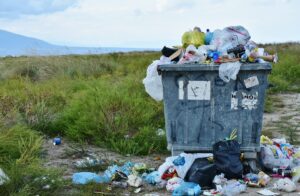It’s an inconvenient fact but…
everyone should be thinking like this these days (we live in the plastic age, after all).
Every plastic bag that’s produced for consumers to carry their goods home should have a price attached. Or, every shopper should be responsible for bringing their own bags into the store with them.
Did you know that a reinforced, reusable plastic bag has a lower footprint than a paper one?
Many shops have now moved to paper bags, which is progress, but also still a waste, because these get thrown away too, often after only one use.
Awareness needs to change – and quickly. Everyone can contribute to wasting less – we have to give it a go.
I have been reading Lucy Siegle's book Turning The Tide On Plastic and highly recommend it.
Now… back to the plastic bag
I will agree that they have served us well over the decades. Have a think about how many plastic bags you have around your home, or in your garage, you might even store them in the boot of your car. On most occasions we should be re-using or re-cycling them. (I certainly do.)
Which leaves me with reduce - as the third of the three levels in waste-prevention.
You can read more about this here. More here:
An even bigger issue
Clearing the overflowing landfills and the trashed oceans is the most visible and widespread global project, which I am very happy about, but equally saddened when I see people placing single vegetables into a multitude of thin plastic bags ready for weighing. The use of plastic bags of all sizes can be easily avoided with awareness and the willingness to do things differently.
Alternatives to plastic bags


Can I have my milk in glass bottles?
Yes, I can.
Can I carry a tote bag to the shops?
Yes, I certainly can.
Even plastic containers can be taken to the shops and vegetables could be placed in them.
And, what if I forget? I would have to pay a fine or carry my goods home without another layer of plastic. Simple as that, every plastic bag or plastic bottle should cost extra.
Plastic bottles are easily avoidable, too. My kids remarked a few years ago: why would you buy water in a bottle every day when you can have it for free?
In the Philippines, people boil their tap water in order to kill bacteria, then they let it cool off - it's perfectly fine drinking water.
Plastic bag or plastic bottle... we can surely avoid putting more of this 'synthetic stuff' (often PET) into our oceans where they eventually land as microplastics, and then get swallowed by fish, which we eat. Stop the madness. Stop the convenience.
And now... onto the Fascinating Facts
- The average EU citizen produces 31 kg of plastic packaging per year, or 85 g of plastic packaging waste per person per day.
- The average American uses 167 plastic bottles of water each year.
- There were 32 million tons of plastic waste generated in 2012 (USA).
- Plastic is the largest source of ocean litter.
- An astounding 381 million tons of plastic was produced worldwide in 2015 (in 1950 there were 2 million tons produced.) Book: Living the 1.5 Degree Lifestyle, by Lloyd Alter.
- Our GPGP (The Great Pacific Garbage Patch - The Ocean Cleanup) is growing all the time. Plastics dating from the 1970s have been found in the ocean. It's shameful that we didn't do anything sooner to avoid the rubbish getting into the ocean.
Our thoughts
PRL thinks that people can change their attitude towards the consumption of plastic bags (and other unwanted layers of plastics). Industries are working on this, but don't forget, their incentive is coming from a different place. They are still selling their products and want to make a big profit by selling shiny, wrapped-up products. (Although, bananas, for example, already have a wrapping…)
PRL's staff have said goodbye to the plastic bag as we know it. Our motto is BYOB (Bring Your Own Bag).
For more info: Plastic Recycling Facts — The truth about recycling plastic bags - RTS
What are you doing to reduce your use of plastics? I hope that with this blog we have given you food for thought.
Bella, Property Revolutions Ltd.


